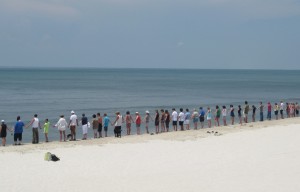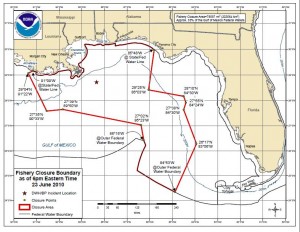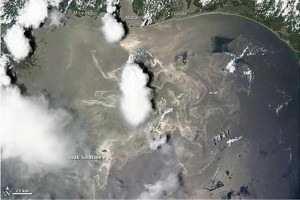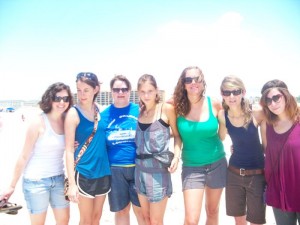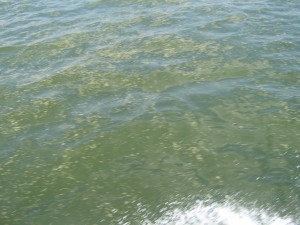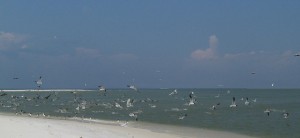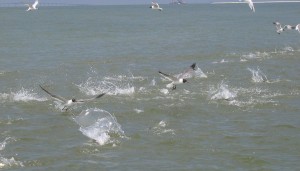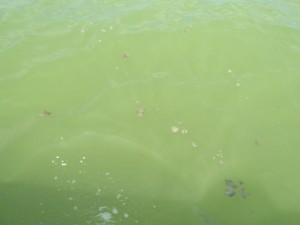Category Archives: Oil spill
When Natural Disasters are Bad Enough who Needs Oil Spills
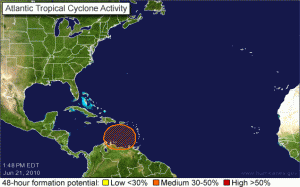 The National Hurricane Center is watching a tropical wave in the Caribbean Sea. This system could develop into a tropical storm and enter the Gulf of Mexico next week. The effects of any tropical storms or hurricanes on the oil eruption, gulf environment, capping efforts, and clean-up efforts are anyone’s guess. Predicting the number of hurricanes is hardly an exact science, but published predictions for a hyper-active hurricane season are rattling nerves already exhausted by vacations lost, jobs lost, habitats lost, and lives lost.
The National Hurricane Center is watching a tropical wave in the Caribbean Sea. This system could develop into a tropical storm and enter the Gulf of Mexico next week. The effects of any tropical storms or hurricanes on the oil eruption, gulf environment, capping efforts, and clean-up efforts are anyone’s guess. Predicting the number of hurricanes is hardly an exact science, but published predictions for a hyper-active hurricane season are rattling nerves already exhausted by vacations lost, jobs lost, habitats lost, and lives lost.
Hurricanes are just part of life, but the prevention of future oil spills can be accomplished with sensible, courageous decisions.
Hands across the Sand
This Saturday, June 26, all across the United States, Hands across the Sand events will take place. Hands across the Sand is an event for people who want to say “No” to off-shore drilling and “Yes” to cleaner energy alternatives. It’s not for everybody. But for those who support this message it is a collective opportunity to make their voices heard. If you agree with this message, please come, bring family and friends, and make your voice heard!
On Dauphin Island, people will begin gathering at the public beach around 11:00 AM and will join hands for 15 minutes at 12:00 noon.
Oil Returns to Dauphin Island Waters
Saturday afternoon, in the Mississippi Sound just north of Dauphin Island, my brother, Joe, and I (in his boat) passed through sizable areas of surface oil. Click pictures below for larger, more detailed images.
In Katrina Cut, despite oil in the water just to the north, larger fish and birds were having a feeding frenzy on smaller fish.
Katrina Cut has become rich natural wonder since Hurricane Katrina opened it. But to prevent oil from passing through it, we are now going to fill it in with rocks and sand. Sadly, the oil has now entered the Mississippi Sound not through the cut at all but from the west.
About 40 minutes later, quite close to the feeding birds and fish, we saw a large area of approaching oil only 25 yards from the Dauphin Island beach. This oil also threatens the shores Bayou La Batre, Heron Bay, and other coastal communities.
Check out our new In Touch tab at the top of the web page.
Don’t let no Oil Spill Turn You ’Round
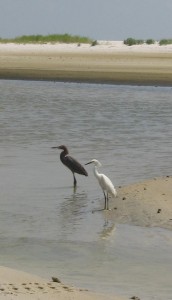
Reddish and snowy egrets weathering the oil spill together, photographed June 12, 2010, Dauphin Island
Today I was told, “This oil spill’s going to last for the rest of our lives.” Hopefully not, but one thing’s for sure, the human family has storms enough coming and brewing now to fill our lifetimes. “Constant vigilance!” as Mad-eye Moody vowed needs to be our motto too. In the last blog entry, I spoke of encouragement. But right now southerly winds are pushing the oil toward the Gulf beaches. Hurricane season is beginning with the warmest waters on record ready to fuel the cyclones. The economy worldwide is in disarray. So, ultimately, encouragement needs deeper roots.
That’s why, right now I’m humming African American spirituals which helped sustain deep encouragement in the midst of great trouble. “Sometimes I feel like a motherless chile …” “Nobody knows the trouble I’ve seen …”
The spirituals proclaimed a firm, rebellious hope as well. “Trouble Don’t Last for Always …” “Don’t let nobody turn you ’round!” And later, “Don’t let segregation turn you ’round!” Today, let’s say together, “Don’t let no oil spill turn you ’round!” Today, like before, for all our problems, let it be a hope held inside. A hope held in common. The spirituals did not offer a quick fix, but an intergenerational hope passed from the old to the young, from parents to children, from friends to friends. A hope engraved in hearts by generous service. A hope sustained by the winds of the Spirit.

